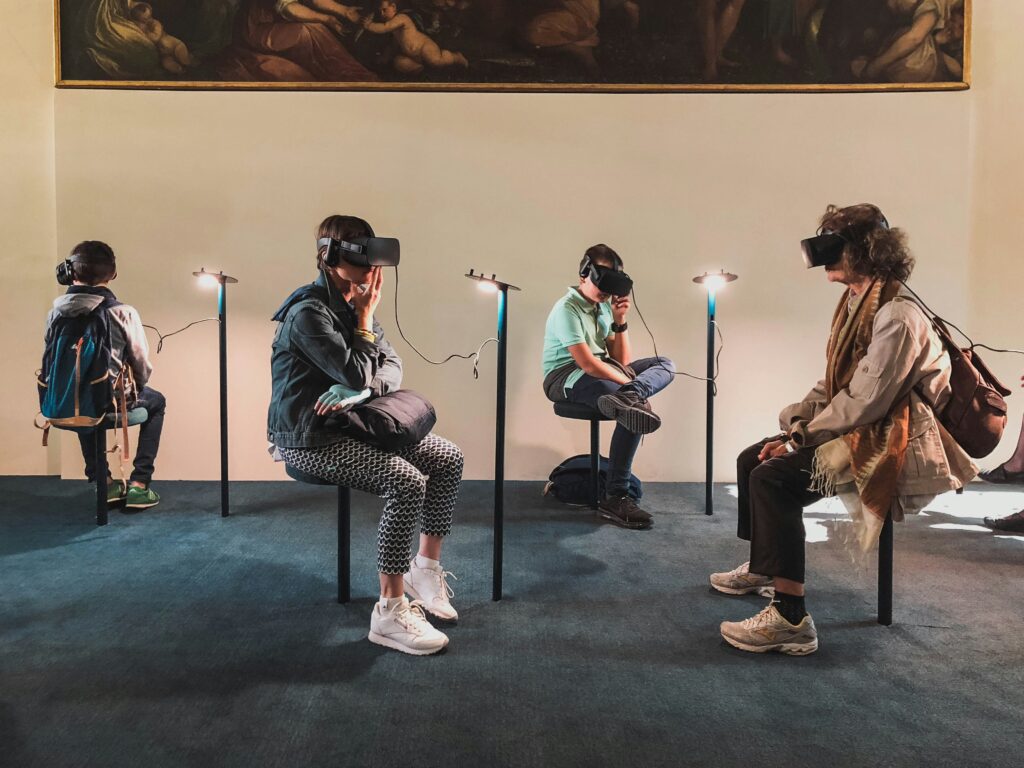For many of us, AI inspires terrifying apocalyptic ideas of a bleak George Orwell-esque world governed by an omnipresent ‘metaverse’. Information privacy was and will still be one of the biggest worries when it comes to fast-paced developments in AI. Yet, the more recent and pressing issue of AI being able to replace most job functions has made the threat feel a lot more tangible to many people across the world. What is the future of business going to look like?
AI will affect many industries. Factory workers will become obsolete, accountants, software developers, customer service, many research based work – all of these titles will be hit hard by the rise of AI. However, we’ve experienced this before, as with every new invention that affects the working-world. With the death of some jobs, comes the rise of new ones.
In our experience thus far, technology has bridged many global divides which have allowed us to be more proactive in connection, become masters of our own productivity, and development. Due to the unimportance of location with tech, it can speed up timelines significantly.
Never before has there been such a tool to connect and streamline the processes of business. Skill mastery, project completion, and international collaboration are only some the developmental revolutions that modern technology has brung forth.

What Is The Metaverse?
It’s not just the love child of Mark Zuckerberg and his social software platforms, Instagram & Facebook. Although you would have most likely been introduced to the idea of the metaverse through this update, the term has been around since Neal Stephenson’s 1992 science fiction novel Snow Crash. A novel where humans live as programmable avatars and interact in a three-dimensional virtual space that uses the metaphor of the real world. Sound familiar?
‘The metaverse is a loosly definied term referring to virtual worlds in which users are represented by avatars, this is where they interact in 3D virtual reality (ocurrs 2D as well). Focused on social and economic connection… A hypothetical iteration of the internet as a single, universal, and immersive virtual world that is facilitated by the use of VR and AR headsets.’
Though, the potential of a functioning metaverse like the one in Snow Crash is markedly different to feasibility in its current state.
Is Business Going To Be Ready For VR, AI, & The Metaverse?
It’s not all grey and beige. There will always be a demand for real human connection, especially if it becomes a novelty. But, AI will still present for the world of work a more interactive and integrated environment, more targeted results, and better work-life balance.
In reality, it’s already largely integrated into many aspects of our daily living. Industries such as healthcare, finance, education, defence, automotive, and many more utilise AI for accurate data collection, measurements, and further research. We are already used to some simpler aspects like Chat bots which are now ‘apart of the furniture’ for web developers and marketers.
VR does present opportunity to train employees and associates with in low-risk, experiential formats. Especially for engineering, procurement, and construction (EPC) companies, the metaverse can facilitate virtual training programmes which can be designed to closely match real life situations. This gamification of training has the potential in keeping workers safe in experiential learning opportunities.
Expect more:
- Gamification
- Remote Working
- Gadgets & Gizmos
- Re-skilling
- New Job Roles
Whatever our predictions, some will come to pass whilst others won’t. The world of work will look drastically different, in time. Humans aren’t huge fans of substantial change in rapid succession and the implementation of advanced AI will be difficult to adjust to. It may divide communities more, or it may be the bridging saviour we’ve all been waiting for…






